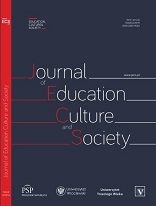Keynesianism vs. Classical Economic Theory: European Refugee Crisis and the Fall of Multiculturalism
Keynesianism vs. Classical Economic Theory: European Refugee Crisis and the Fall of Multiculturalism
Author(s): Aliaksei PatoniaSubject(s): Economy, Supranational / Global Economy, Socio-Economic Research
Published by: Fundacja Pro Scientia Publica
Keywords: European Union;global economic crisis;Fukuyama;Hofstede;cultural dimensions;liberal democracies;Keynesianism;classical economic model;refugees;
Summary/Abstract: Posing arguments against statistical evidence picturing the European Union as the key world economy, the research views the economic model of the EU through the prism of Hofstede’s cultural dimensions, explaining its lower resistance towards the global economic crisis and comparing it to China – a country with authoritarian governmental methods – that suffered to a significantly lesser extent. Based on the example of these two entities, the paper views the topic of the current refugee crisis in Europe representing it as a new crucial trial for the EU that potentially checks classical economic theory for consistency. According to the author, if found effective, in the foreseeable future it will form a sound basis for further development, if not – it will likely be replaced by the Keynesian paradigm. Thus, with the current refugee crisis in Europe, the author juxtaposes liberal economy with the state-regulated one. This is done to give hints at the importance of the crisis per se, as it is believed to be capable of shattering some of the fundamental principles of the current world order.
Journal: The Journal of Education, Culture, and Society
- Issue Year: 8/2017
- Issue No: 2
- Page Range: 13-20
- Page Count: 8
- Language: English

